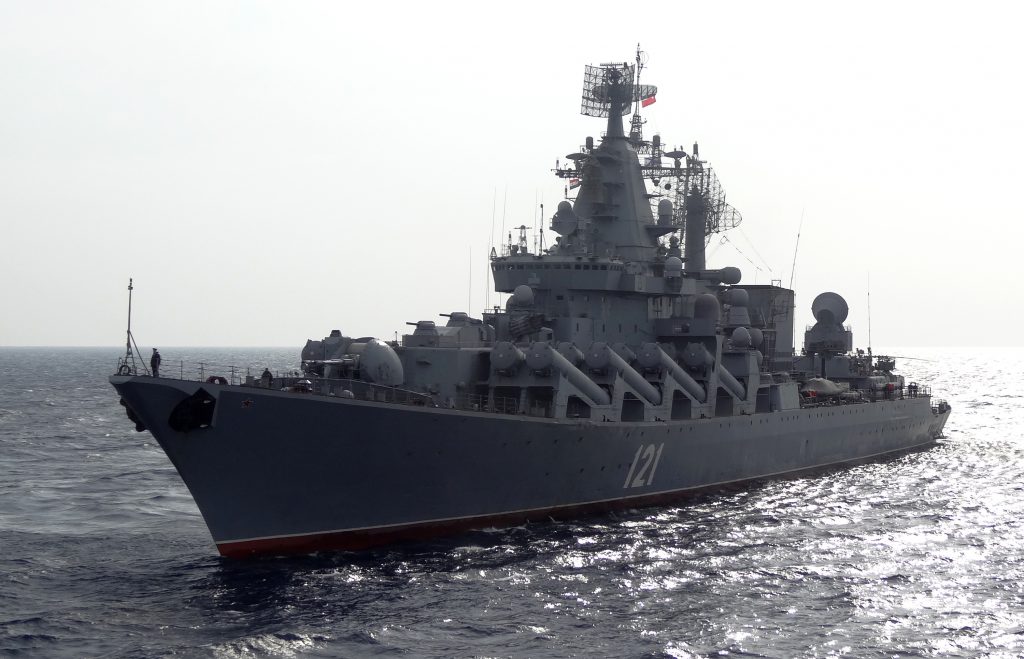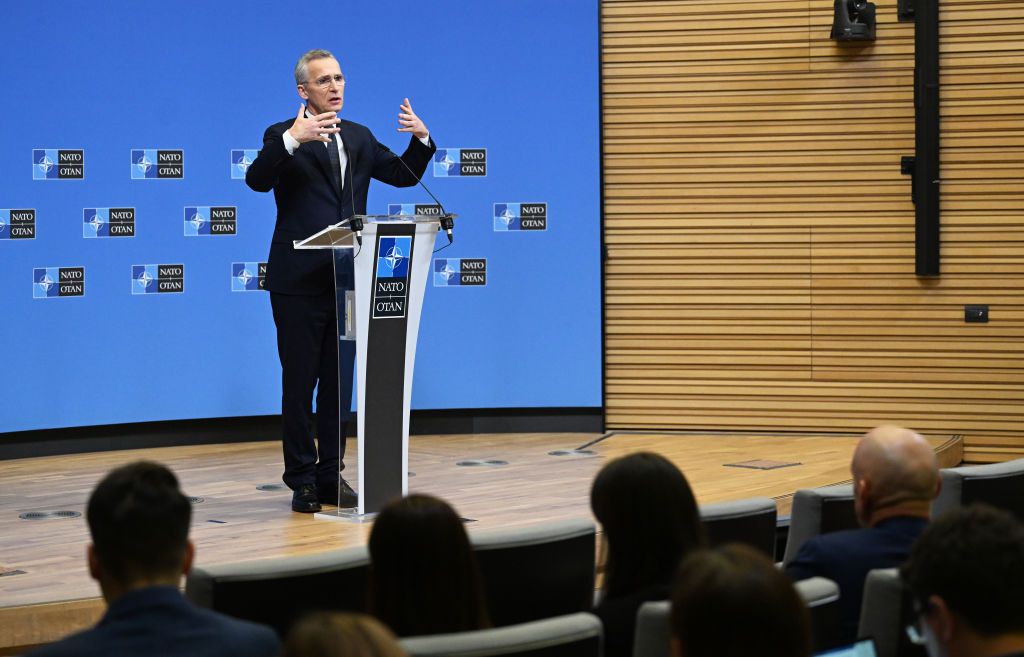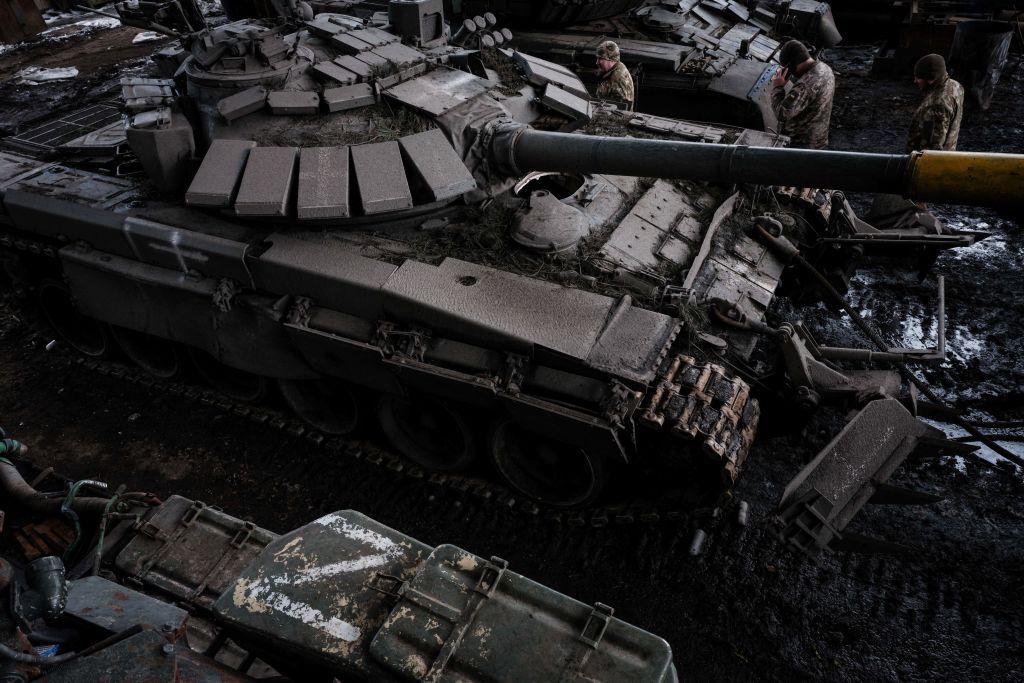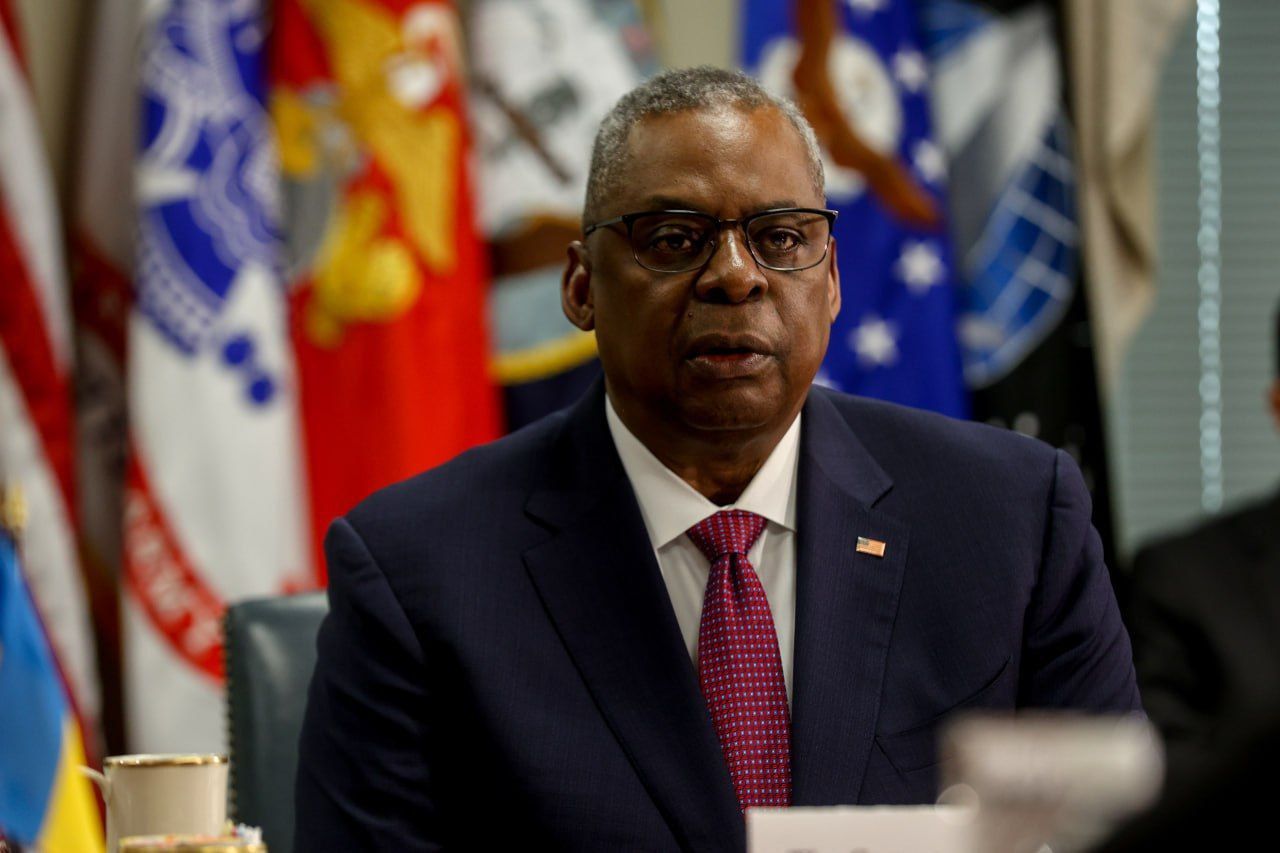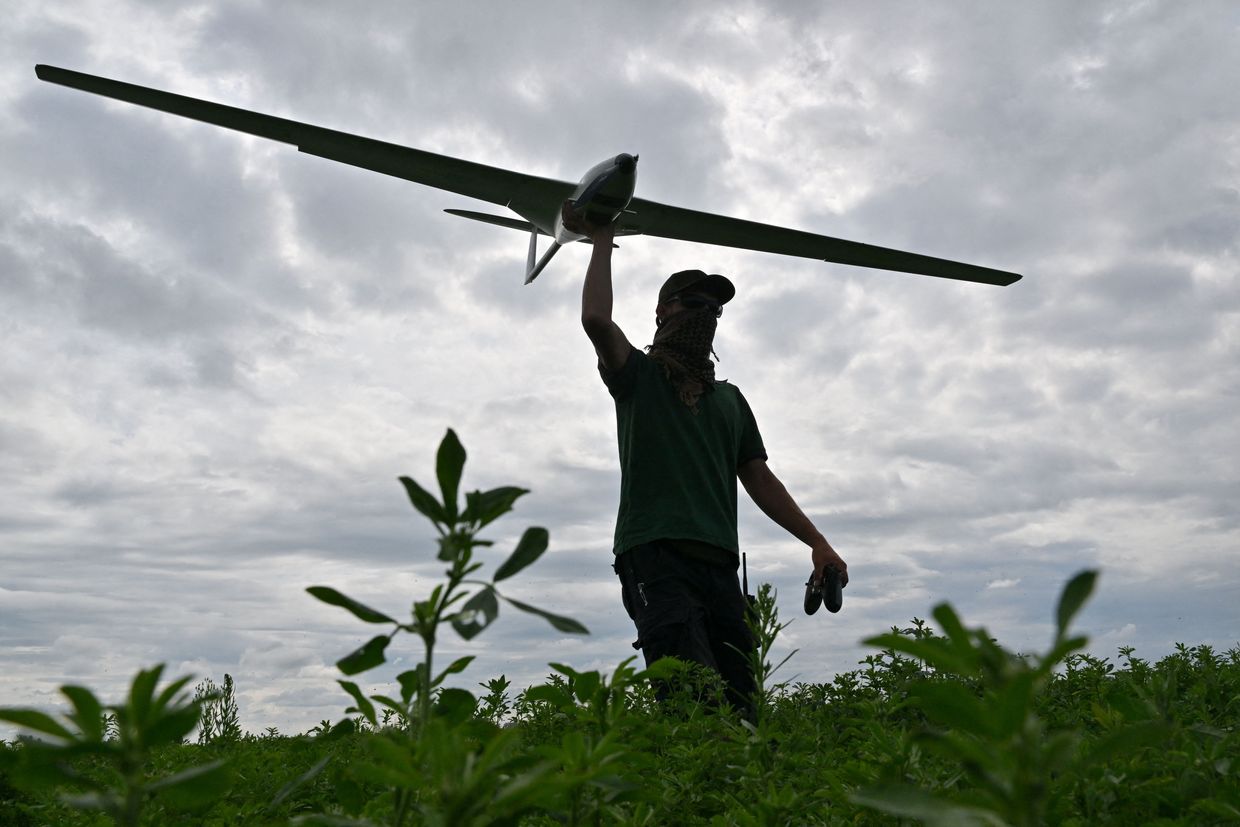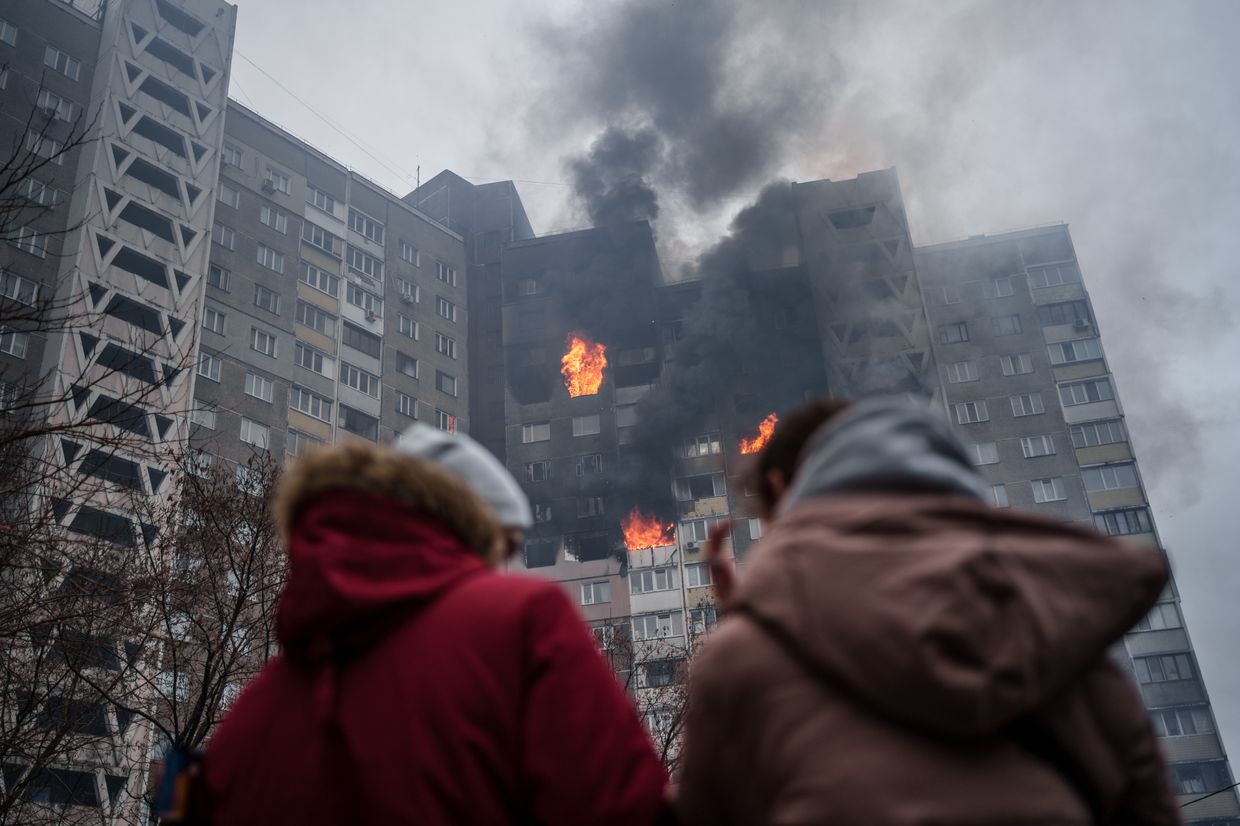Ukraine war latest: Ukrainian forces sink another Russian warship off Crimean coast

Key developments on Feb. 14:
- Russian landing ship sinks in Black Sea; Ukraine says it was hit with naval drones
- Stoltenberg says 18 of 31 NATO members expected to meet 2% defense spending goal
- Kremlin denies Reuters report that Putin proposed ceasefire to US
- Canada allocates $44 million to support Ukraine's future F-16 fleet
- Pistorius: Germany aims to deliver 4 times as many shells to Ukraine in 2024
- Russian attack on Kharkiv Oblast village kills 2, injures 5
The Russian landing ship Caesar Kunikov was sunk in the Black Sea in the morning of Feb. 14, the General Staff of Ukraine's Armed Forces confirmed.
The General Staff said it was a joint operation between Ukraine's military intelligence and the armed forces.
Ukraine's military intelligence later shared a video of the attack and said it had been carried out off of the Crimean city of Alupka with Magura V5 naval drones. It claimed that Russian search and rescue operations were unsuccessful, and that most of the crew didn't survive, although it is uknown how many personnel were on the ship when it was sunk.
Russia's Defense Ministry claimed earlier on Feb. 14 that it had shot down nine drones overnight, including six over the Black Sea. Local Telegram channels then shared videos of helicopters circling low over the water, appearing to be searching for something.
It is the fourth landing ship from Russia's Black Sea Fleet to be sunk since the beginning of the full-scale invasion in February 2022, according to the U.K. Defense Ministry.
The Caesar Kunikov's sister ship, the Novocherkassk, was "completely destroyed" by a Ukrainian missile strike in December 2023 while docked at Feodosia in occupied Crimea, the U.K. Defense Ministry said.
Both ships were previously damaged by Ukrainian attacks at the port city of Berdiansk in March 2022.
Ukrainian Navy spokesperson Dmytro Pletenchuk said on Feb. 14 that following the sinking of the Caesar Kunikov, the number of Ropucha-class landing ships remaining in the Black Sea Fleet had decreased to five from a previous total of 13.
Stoltenberg says 18 of 31 NATO members expected to meet 2% defense spending goal
NATO Secretary General Jens Stoltenberg said on Feb. 14 that he expected 18 of the 31 NATO members to meet the goal of spending at least 2% of their GDP on defense in 2024, an increase of seven countries from the previous year.
NATO allies reached an agreement following Russia's illegal annexation of Crimea in 2014 to halt the reduction in defense spending implemented after the Cold War, and aim to allocate at least 2% of their respective GDPs to defense by 2024.
The need to increase defense spending was reignited after the full-scale invasion of Ukraine in 2022. In a first since the end of the Cold War, Germany is expected to reach the 2% goal, a spokesperson for Germany's Defense Ministry said on Feb. 14.
Speaking at a press conference in Brussels ahead of a meeting of NATO defense ministers, Stoltenberg said that European countries in NATO would invest a combined total of $380 billion in defense spending in 2024.
Stoltenberg's comments came days after former U.S. President Donald Trump said he would encourage Russia to do "whatever the hell they want" to NATO member countries failing to meet the defense spending goal if he were again elected president.
Trump's suggestion was widely condemned on both sides of the Atlantic.
"We should not leave (any) room of miscalculation or misunderstanding in Moscow about our readiness, our commitment and our resolve to protect all allies," Stoltenberg said at the press conference on Feb. 12.
"The reason to do so is not to provoke a conflict but to prevent a conflict as NATO has done successfully for 65 years," he added.
Kremlin denies Reuters report that Putin proposed ceasefire to US
Kremlin spokesperson Dmitry Peskov denied the Reuters report on Feb. 14 that claimed that Russian President Vladimir Putin had proposed a ceasefire in Ukraine to the U.S.
Reuters reported on Feb. 13, citing anonymous Russian and American officials, that the U.S. allegedly rejected attempts by Putin to engage in peace talks because Ukraine was not included in the proposed negotiations. "No. It is not true," Peskov said of the report.
Except for unsuccessful talks during the spring of 2022, there have been no direct peace negotiations between Ukraine and Russia.
Kyiv said categorically that a full Russian withdrawal is a precondition for any talks.
Both the Russian officials and an unnamed American source told Reuters that the U.S. ruled out holding any back channel peace talks that did not include Ukraine. The U.S. source also said it would not engage in official peace talks with Russia.
Russian sources also reportedly said that the U.S. does not trust that Putin genuinely wants a ceasefire.
Western officials have repeatedly said that Russia would likely not engage in negotiations in good faith.
Canada allocates $44 million to support Ukraine's future F-16 fleet
Canada has allocated $44 million to support Ukraine set up its fleet of F-16 fighter jets, Canadian Defense Minister Bill Blair said on Feb. 14.
The announcement was made during the 19th Ramstein-format meeting of the Ukraine Defense Contact Group (UDCG), which is being held in a hybrid format in-person in Brussels and online.
According to Canada's Defense Ministry, the allocation is part of the 500 million Canadian dollar ($368 million) package for Ukraine that Canada announced in June 2023.
The $44 million will go toward equipment such as "spare parts, weapons stations, avionics, and ammunition," the Canadian Defense Ministry said.
Canada will also "contribute to training efforts by providing civilian instructors, planes, and support staff contracted from Montreal-based Top Aces Inc.," as well as providing English language training to Ukrainian Air Force personnel.
The training support is valued at 15 million Canadian dollars ($11 million) and "will last from February 2024 into 2025."
The training of Ukrainian pilots began in Denmark this August in partnership with other nations of the "fighter jet coalition," led by the Netherlands and Denmark.
Washington later announced that it would launch its own training sessions for Ukrainian aviators in October. A training center for Ukrainian F-16 pilots officially opened in Romania on Nov. 13, 2023.
The first Ukrainian pilots are expected to have completed their F-16 training by the end of 2023 and will be able to fly the jets in Ukraine by the spring or summer of 2024.
Denmark, Norway, Belgium, and the Netherlands have agreed to supply their own F-16 aircraft to bolster Ukraine's Air Force.
Pistorius: Germany aims to deliver 4 times as many shells to Ukraine in 2024
Germany plans to "deliver around three to four times as much artillery ammunition" to Ukraine in 2024 as it did in 2023, German Defense Minister Boris Pistorius said upon arrival to the meeting of the UDCG in Brussels on Feb. 14.
Germany will spend more than 3.5 billion euros ($3.75 billion) on purchasing ammunition in 2024, Pistorius said, describing this as an "unprecedented" figure.
The EU's top diplomat, Josep Borrell, recently conceded that the EU will fail to provide a million artillery rounds to Ukraine by March. Only around half of this number is projected to be delivered by the original deadline.
The EU now aims to deliver over 1 million shells to Ukraine by the end of 2024, Prime Minister Denys Shmyhal said after meeting Borrell in Kyiv on Feb. 7.
A report by Estonia's Foreign Intelligence Service on Feb. 13 assessed that Russia's supply of artillery ammunition far outstrips that of Ukraine.
As well as producing new ammunition, Russia refurbishes Soviet stocks of artillery ammunition, bringing the amount available to "3-4 million units in 2023," according to the report.
"A lesson from this war is that munitions are essential for operational readiness," Pistorius told reporters in Brussels.
Pistorius referenced his visit on Feb. 12 to the construction site of a new ammunition factory in Germany being built by the German arms manufacturer Rheinmetall. The factory is expected to be able to produce up to 200,000 artillery shells per year.
Russian attack on Kharkiv Oblast village kills 2, injures 5
Two men were killed in a Russian missile attack on Kharkiv Oblast's village of Velykyi Burluk after being buried in the rubble, Governor Oleh Syniehubov said on Feb. 14.
Three men and two women were reportedly injured. Four people were rescued from the debris, the governor reported.
Russian forces launched the attack at around 4 p.m. on Feb. 14, most likely using S-300 missiles, according to Syniehubov.
A two-story building was hit, and eight of its 16 apartments were damaged, the police said. A house and two police cars were also reportedly damaged.
Velykyi Burluk lies around 80 kilometers east of Kharkiv and over 20 kilometers west of the Russian border.
The village was temporarily occupied by Russian forces in 2022 until its liberation in Ukraine's surprise counteroffensive in the autumn of that year.


